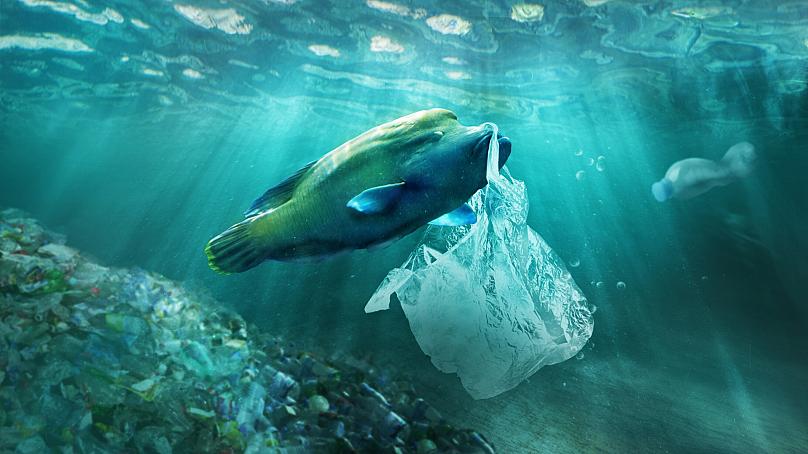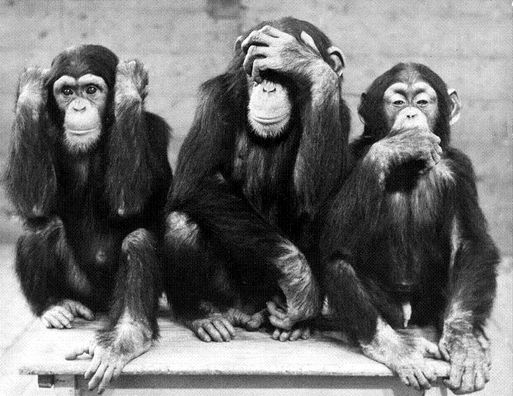If I had to guess what the most profitable organization in the world is, I think I'd put my money on NASA.
Wait, what?
1/*
Wait, what?
1/*
In the US, people swoon at profits and prophets (Jesus), I'll kick this off with a quote from Jesus, Mark 8:36 “For what shall it profit a man, if he shall gain the whole world, and lose his own soul?”
Even Jesus knew there's more to this than money.
2/*
Even Jesus knew there's more to this than money.
2/*
Economic activities have "externalities." These are costs or benefits that aren't born or received by the producer. For example, the Coca Cola Company is the largest producer of plastic waste harming the ocean's ecosystem. It's a cost they don't pay.
https://www.forbes.com/sites/trevornace/2019/10/29/coca-cola-named-the-worlds-most-polluting-brand-in-plastic-waste-audit/?sh=1fbd83c374e0
3/*
https://www.forbes.com/sites/trevornace/2019/10/29/coca-cola-named-the-worlds-most-polluting-brand-in-plastic-waste-audit/?sh=1fbd83c374e0
3/*
It sounds like a good way to deal with negative externalities is to make entities responsible for them pay for correcting for them. But that's hard to do. If the US forced all of its polluting companies to stop polluting, then non-US companies might have a competitive edge.
4/*
4/*
We have positive externalities, too. If you're an American who never went to school, you're still probably better off than someone in Mozambique because the people around you went to school.
The positive externality of education is to boost the entire economy.
5/*
The positive externality of education is to boost the entire economy.
5/*
Or there's the positive externality of the police: their mere existence can lower crime rates. You're less likely to be a victim of crime, *even if you didn't pay your taxes.*
This is called the 'free rider problem' of public goods.
https://en.wikipedia.org/wiki/Free-rider_problem
6/*
This is called the 'free rider problem' of public goods.
https://en.wikipedia.org/wiki/Free-rider_problem
6/*
In the "free rider" problem, if people realize they can benefit without paying, they often try not to pay, through means both legal and otherwise. This is why, almost by definition, anything which produces a positive externality tends to be underfunded.
7/*
7/*
What sort of things produce significant positive externalities and are constantly under-funded?
* Education (understand your work)
* Health care (able to perform your work)
* Public transportation (able to get to your work)
But they all contribute massively to the economy.
8/*
* Education (understand your work)
* Health care (able to perform your work)
* Public transportation (able to get to your work)
But they all contribute massively to the economy.
8/*
Let's get back to NASA. Strictly speaking, they're a government agency—not a state-owned enterprise—so profit isn't quite the same, but what about externalities? We can't ignore the pollution. Rockets produce unusually large levels of pollution, but
https://eos.org/features/the-coming-surge-of-rocket-emissions
9/*
https://eos.org/features/the-coming-surge-of-rocket-emissions
9/*
But actually, NASA hasn't launched enough rockets for it to (yet) be to blame, and they did so before we understood the issue. Still, they laid the foundation for it, so we can't ignore it. But for the purposes of this thread, I'll ignore it anyway.
10/*
10/*
But what about the positive externalities? That's easy. Think of the technological boon NASA has been. Let's consider a short list of things NASA has developed directly, or contributed to the development of.
11/*
11/*
Air quality monitors used in smokestacks
Better structural analysis technologies
Energy efficient insulation
Freeze-dried food
Not enough for you?
12/*
Better structural analysis technologies
Energy efficient insulation
Freeze-dried food
Not enough for you?
12/*
Machinery lubricants
Many new medical techniques
New hydroponics techniques
Scratch resistant lenses
Still need more?
13/*
Many new medical techniques
New hydroponics techniques
Scratch resistant lenses
Still need more?
13/*
Semiconductors
Smoke detectors
Solar energy
Water purification systems
Weather forecasting
See where I'm going with this?
14/*
Smoke detectors
Solar energy
Water purification systems
Weather forecasting
See where I'm going with this?
14/*
NASA has, and will continue to be, one of the greatest powerhouses for national profit the US has ever known. Think about those massive benefits we've been receiving for *decades* because of NASA.
15/*
15/*
OK, fine. But what about now? SpaceX is destroying them.
Uh, no.
NASA's 2019 budget was $21.5 billion. Also 2019: NASA generated $64.3 billion in economic output, more than 312,000 jobs, and $7 billion in federal, state, and local taxes.
https://www.nasa.gov/press-release/nasa-report-details-how-agency-significantly-benefits-us-economy
16/*
Uh, no.
NASA's 2019 budget was $21.5 billion. Also 2019: NASA generated $64.3 billion in economic output, more than 312,000 jobs, and $7 billion in federal, state, and local taxes.
https://www.nasa.gov/press-release/nasa-report-details-how-agency-significantly-benefits-us-economy
16/*
But what about SpaceX? Don't forget they almost went bankrupt. And there are numerous other "space" companies which have already gone bankrupt. NASA will continue to provide great value with no risk of bankruptcy in the foreseeable future.
https://www.cnbc.com/2017/09/29/elon-musk-9-years-ago-spacex-nearly-failed-itself-out-of-existence.html
17/*
https://www.cnbc.com/2017/09/29/elon-musk-9-years-ago-spacex-nearly-failed-itself-out-of-existence.html
17/*
And because NASA will continue to do cutting-edge research, they will continue to produce those technological marvels which can boost the US economy far beyond where it currently is.
18/*
18/*
There's also this 2013 Tauri Group study on "NASA Socio-Economic Impacts". They found that for every dollar spent on NASA, $2.60 was returned to the US economy.
Not too shabby for an incredibly inspirational organization.
https://www.nasa.gov/sites/default/files/files/SEINSI.pdf
19/*
Not too shabby for an incredibly inspirational organization.
https://www.nasa.gov/sites/default/files/files/SEINSI.pdf
19/*

 Read on Twitter
Read on Twitter









